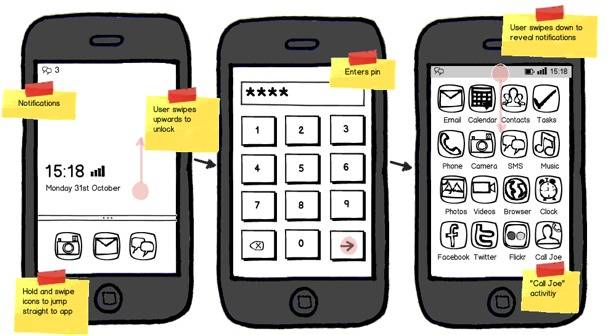HTML5 Web apps are going to become a definitive section of the mobile ecosystem in 2012. The difference between the mobile Web and its native counterparts is that there is no one company seen as the de facto leader of the movement. Apple leads iOS, Google touts Android, Microsoft and Nokia push Windows Phone. The mobile Web? Lots of players, no clear leader.

One company is in the perfect position to take the reigns. What do you think about when you hear terms like “open,” “cross-platform,” and “standards?” Certainly not Apple. Facebook has the chops to lead the mobile Web but is closed system flies against the open Web community. When it comes to developers, resources, leadership and coding acumen, one company stands ahead of the mobile Web pack. If Mozilla wants it, the mobile Web is there for the taking.
At Mobile World Congress next week, Mozilla will open up its Marketplace for mobile Web apps to developers. The idea of the Mozilla Apps Marketplace is to create an app store model for HTML5 apps that can work on any HTML5 compatible device. It will be the first major mobile Web app store from a major player.
There will be three main features of Mozilla Web Apps:
- The Mozilla Marketplace, the first operating system- and device-independent market for apps based on open Web technologies like HTML5, JavaScript and CSS.
- New Mozilla-proposed APIs that advance the Web as a platform and will be submitted to the W3C for standardization.
- A new identity system for the Web that puts users in control of their content, tying apps to the user and not the device or platform.
The identity system frees users from device specific apps. Mobile Web apps will be available anywhere a browser is present.
Developers can start submitting apps to the Mozilla Apps Marketplace starting at Mobile World Congress. The Marketplace will be available to consumers later in 2012.
We have covered Mozilla’s plans to create a Web-based mobile operating system several times. The idea hinges around the Boot2Gecko project and will be built to be open and compatible with standards such as JavaScript, CSS3 and HTML5. See the roadmap for Mozilla’s mobile plans here.
When it comes to the mobile Web, there are precious few companies set to lead like Mozilla. Facebook has no plans for an app store, Zynga is tied to Facebook and the social graph, Google may endorse the open Web but its mobile initiative is tied to Android. Mozilla has the chops and the mind share to pull it off.

There are several companies and developer studios doing great things with HTML5. Sencha and appMobi are both working on the spec and the ecosystem that will help developers create dynamic Web apps and get paid. Brightcove is taking great steps with HTML5 video and there are a variety of game development studios (like Zynga) that are pushing the bounds of the spec. Taken together, this is the HTML5 ecosystem but none of those companies are positioned to be the leader.
This is Mozilla’s chance to become a major player in the mobile ecosystem. It can chip away at the base of the native platforms while setting itself up to be the location that developers flock to with mobile Web apps. The ability to become a central hub of developer activity is what has made Apple and Google’s mobile platforms so lucrative.
The first step is the Mozilla App Marketplace. It will be the first major app store for the mobile Web and developers should pay attention to how it evolves. Are you planning on submitting an app to Mozilla? What is the potential of this Marketplace? Let us know your thoughts in the comments.

















